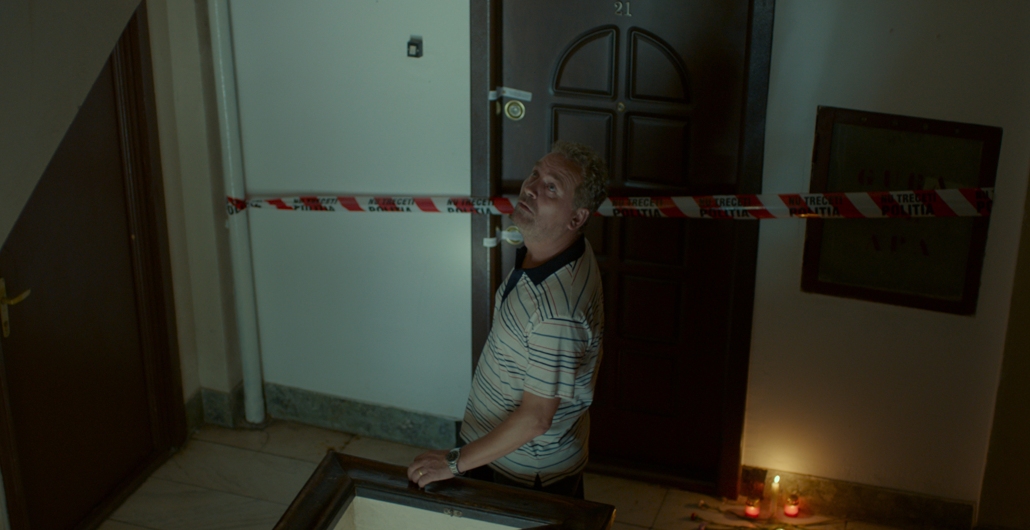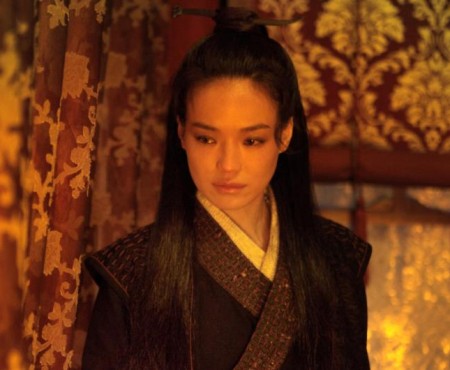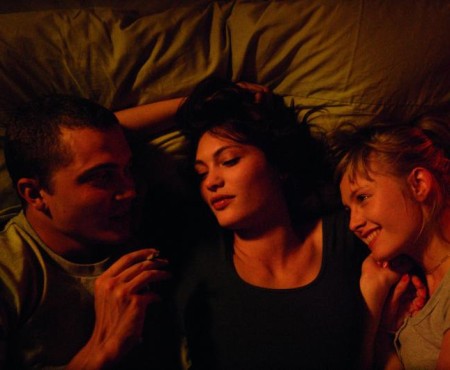It’s not a spoiler to say that, in One Floor Below, a young woman living alone suffers a violent death, or that the prime suspect is Vali (Iulian Postelnicu), a married neighbor with whom she was having an affair. Director Radu Muntean delivers all these details in the first few minutes of the film, when Sandu Pătrașcu (Teo Corban), a resident of the same staircase, comes home from walking his dog and overhears their argument from outside the apartment. He is even caught lingering by the door when the agressor unpredictably rushes out. When the girl is found dead a few hours later – the lurid details of her injuries quickly becoming public via her Facebook account –, Sandu inexplicably decides not to share his insights with the police. He keeps quiet, hesitating to jump to conclusions, choosing to mind his own business.
Scripted by Răzvan Rădulescu and Alex Baciu with equal interest in genre efficiency and sociological insight, One Floor Below goes to great lengths to set up the protagonist as a family man and all-around nice guy, never refusing favors and prone gestures of benevolence whenever he can spare them. By all appearances, he’s haunted by the possible murder, but is pulled back by the thought of involving himself or his family in the muddled situation. Yet this is exactly what happens when Vali starts making up excuses to get closer to him.
When the film works, it’s due to a mix of the Hitchcockian suspense from having the murderer show up casually at lunchtime, and the ethnographic authenticity of depicting life in an apartment building: Sandu’s mother comes to visit at the most inconvenient time and immediately engages Vali into not re-introducing himself because she already knows all about him; Vali gets closer to Sandu’s son talking to him about gadgets; Vali’s wife unsuspectingly nurtures him, worried about his sudden pallor. An extra enjoyable element comes from the discreet self-reference in the screenwriting: the protagonist has phone conversations with a certain Baciu and a certain Rădulescu; Baciu has a cameo waiting in queue; a couple of likes on the dead girl’s Facebook page come from actors credited in the film, and so on.
However, the pace of the film is rather slow – with little to compensate for revealing so much information, with so little ambiguity, within just a few minutes of starting. While some characters add color to the drama, others are pretty obviously brought in to fill a dramatic function, and it’s all the more evident since the performances of bit actors are often bloodless. By genre standards, the plot is pretty thin – why would Vali (a cryptic character by all definitions) murder the girl when he knows their fight was overheard and he’s lucid enough to chase the neighbor upstairs?
Likewise, as social commentary, the film is limited by its decision to stick with its purposefully conventional protagonist, preventing the potentially intriguing back-story from taking shape. Sandu reacts violently when someone assumes on little evidence that the girl must have been promiscuous and given her due punishment, but the argument settles too quickly. Spectators are left in the dark, discouraged to venture into morally murky territory. Ironically, it’s a fault of the film that is similar to Sandu himself, afraid of venturing where there might be trouble.
Two and a half stars out of four.




















